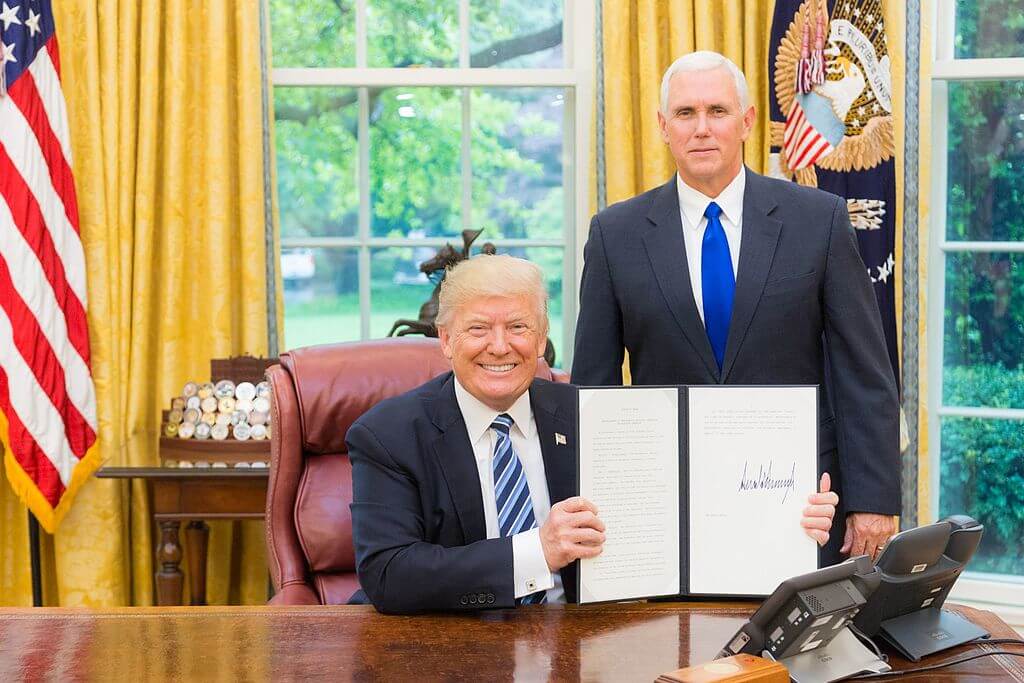On the face of it, President Donald Trump’s $4.1 trillion budget for 2018 is risible. Its math doesn’t add up; it assumes an unlikely growth rate of 3 percent per year through 2027; and it avoids calculating the tax cut, which has been promised as the largest in history.
It lays siege to research from medicine to high energy physics — future invention is none of the government’s business. It takes calculated aim against environmental science. It also takes an axe to the State Department and American diplomacy, which has been vital to our national interest since the founding of the republic.
But it really warms to its perfidy when it comes to Medicaid and other programs for the poor. It says what some people have whispered for years: The poor are poor because they don’t work, and the sick have charities and emergency rooms.
It is policy based on hearsay, on the reprehensible arguments of the country club soiree and on the folk wisdom of talk radio.
At one level, the budget is an abrogation of responsibility as it says to Congress, “You make this work.” At another, it is a look into the dark hearts of some of those around the president. You have to exempt Trump, partly, because pulling together the budget is not his kind of thing: He wasn’t slaving over the numbers, debating the importance of medical research or the global need for diplomacy. That was done by his surrogates, those who hate what they call the “deep state,” but which might also be called governance.
Broad strokes are Trump’s thing and having authorized them, eager hands have molded what passes for a budget but is in fact a guide to the narrow and deeply prejudiced thinking of the men and women who work in the White House and Mick Mulvaney, the budget director and former congressman from South Carolina.
It is not so much a budget as it is a view into the hearts and minds of the most extreme wing of the conservative persuasion, circa 2017. It is a revelation of ignorance, prejudice and indifference to the humane needs of the United States.
It is the lifting of a caprice that has contained their worst instincts for a long time. Now the hard edge, the granite heart, the cold-steel shoulder to sickness, poverty, incapacity and the resources that might abate their attendant suffering is on full view.
If you don’t see it in the budget, look to the Justice Department and to Attorney General Jeff Sessions, who is all silvery charm on the outside and whose heartlessness can only be measured degrees below zero. For the first time in a long time, Congress was moving toward meaningful reform of the justice system with an end to mandatory and hideously long sentences. The Sessions view: Better to lock them up and throw away the key — and all the better if you put them in for-profit prisons.
Criminologists hate mandatory sentences, and most congressmen know them to be perverse and to result in punishment that is both cruel and unusual. It frustrates judges. The judges and prosecutors are denied the right to use their wisdom in the sentencing, instead substituting the wisdom of Congress and the attorney general.
The same harshness permeates the Department of Homeland Security with the vicious implementation of deportations of family members who are living good, productive lives in America. No thought is being given to any solution to the illegal immigration problem — at heart a human problem, not a national security or a criminal one. There are other ways short of deportation to recognize both the illegality of the immigrants and to give them the American life they have so desired. A renewable work permit, for example, not citizenship or the heavy knock of the state on the door — dreaded down through all of history.
This is a budget that is not only dangerous but also explicitly callous. It reveals a black heart, a locked mind and an indifference to U.S. needs in years to come. It will be amended in Congress, but its message will linger. It is an ugly message.
Image: President Donald J. Trump, joined by Vice President Mike Pence, displays his signed Executive Order for the Establishment of a Presidential Advisory Commission on Election Integrity, Thursday, May 11, 2017, in the Oval Office of the White House in Washington, D.C. This image is a work of an employee of the Executive Office of the President of the United States, taken or made as part of that person’s official duties. As a work of the U.S. federal government, the image is in the public domain.

